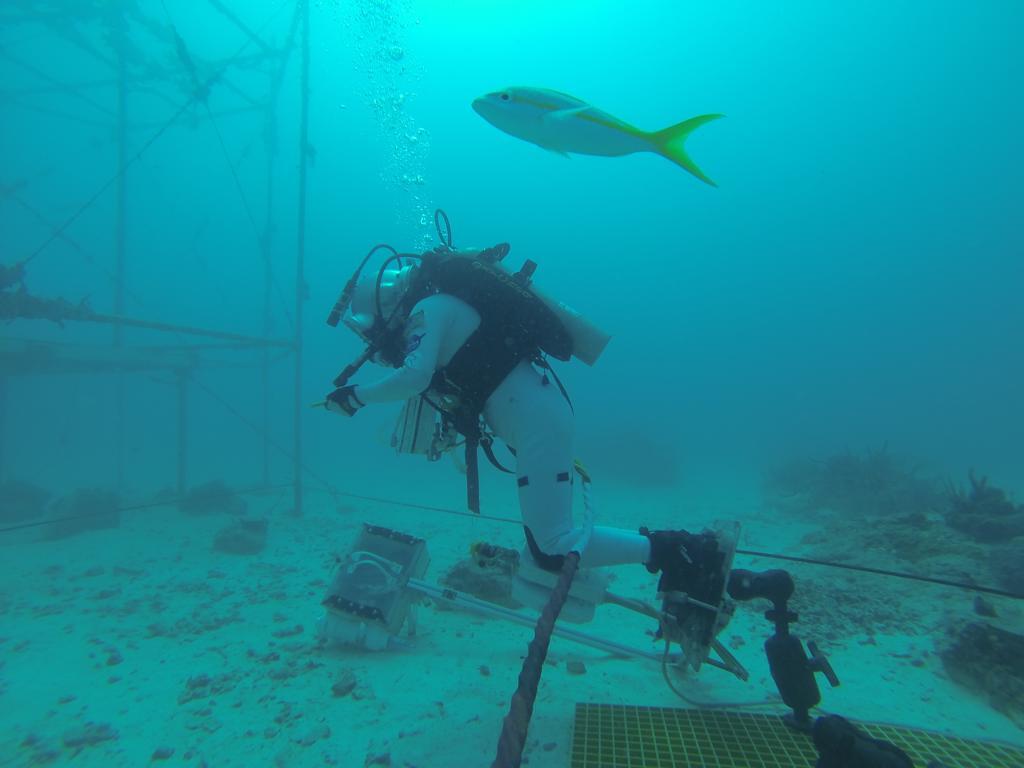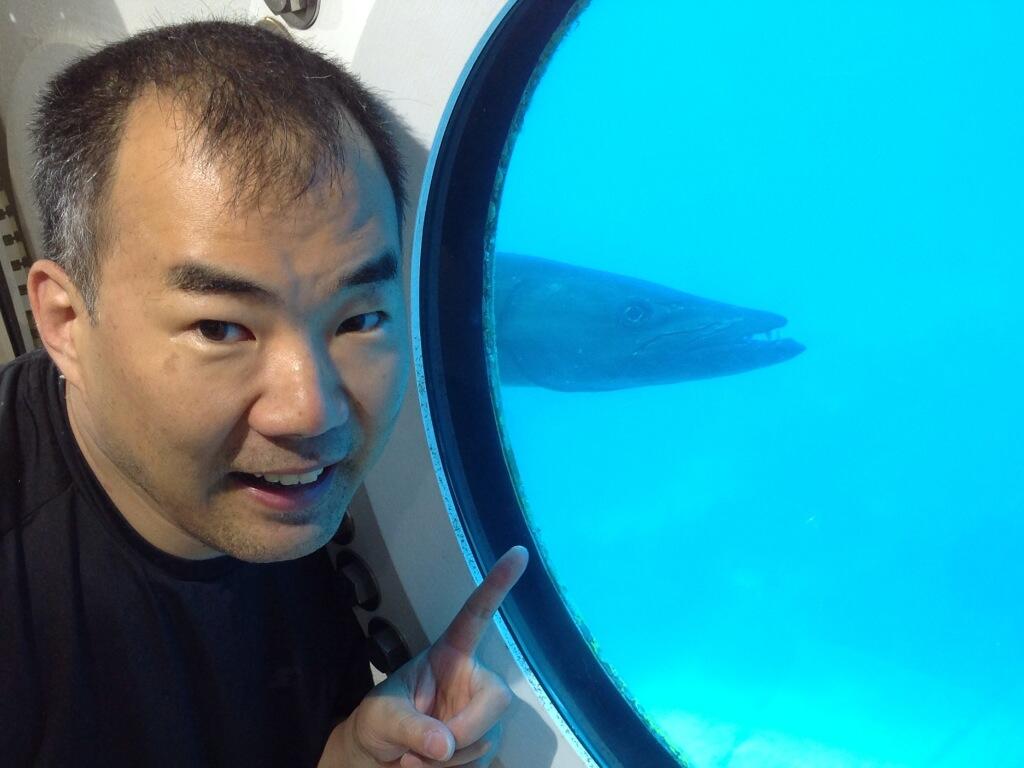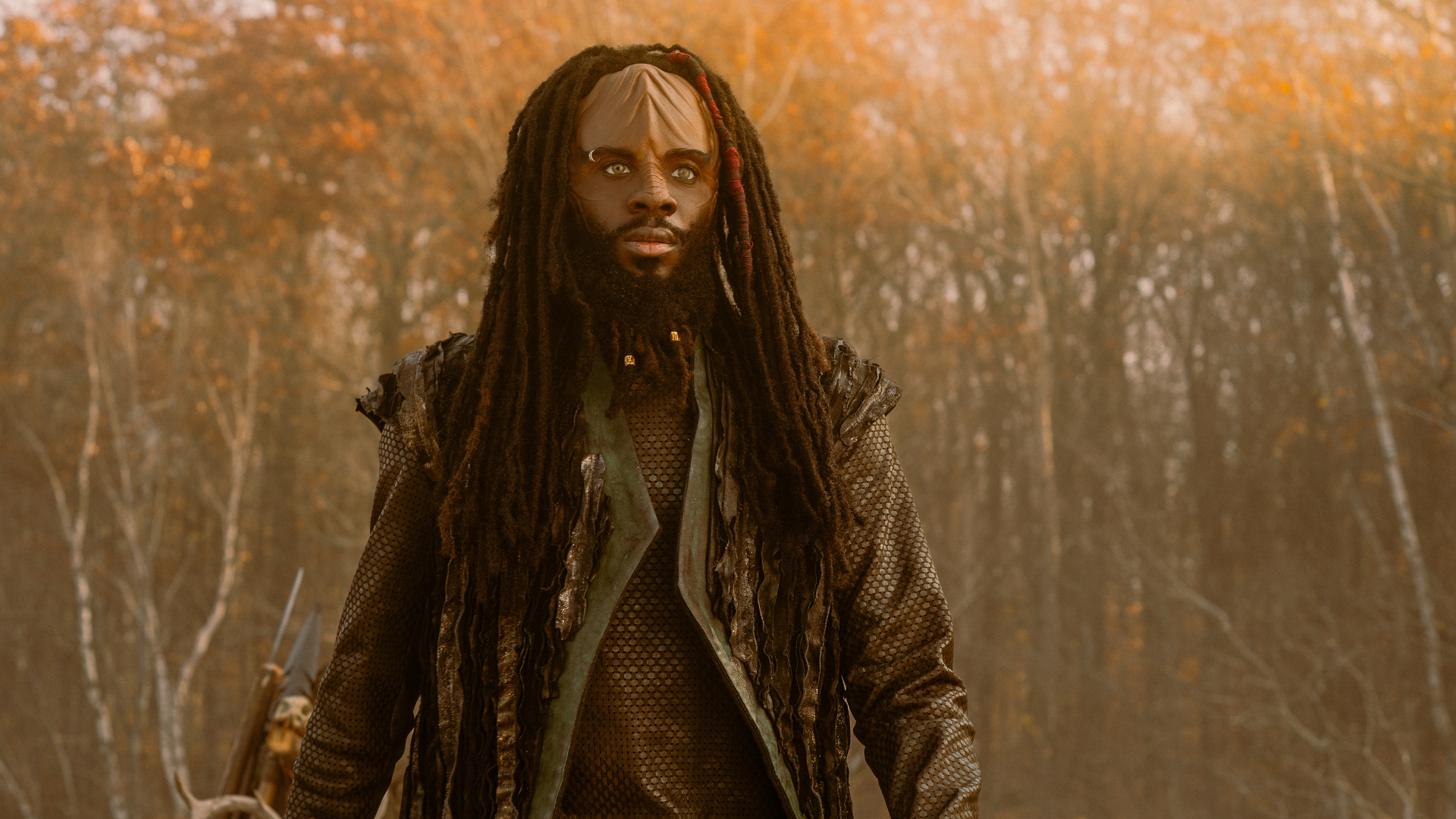Undersea Astronauts Practice Spacewalks on Ocean Floor

While taking a break from spacewalk practice on Thursday (Sept. 12), an astronaut consulted a checklist of activities only to be visited by ... a large fish?
Such is the daily life for an international team of astronauts working on the ocean floor at the Aquarius undersea laboratory in Florida. The astronauts, who represent the United States, Europe and Japan, are hard at work Space Environment Analog for Testing EVA Systems and Training (SEATEST) mission. Preparations for the five-day space simulation began Monday (Sept. 9) and aims to test procedures related to spacewalks, training and team communication for space.
Instead of an expensive ride into orbit, the five astronauts swam about 50 feet into an underwater trailer-sized lab nestled in the Florida Keys National Marine Sanctuary. [9 Coolest Mock Space Missions Ever]
"It also has a hydrate station where we can brush our teeth," said Andreas Morgansen, an astronaut with the European Space Agency, in a video tour of the Aquarius habitat. The video showed a small school of fish in a window behind the small "station", which included a sink.
"Most importantly, [we have] our comms station where we can talk with the divers when we're out on EVA, and with the Mission Control center topside."
Aquarius – the only permanent underwater scientific research facility in the world – has been conducting operations for the better part of two decades, including 16 NASA Extreme Environment Mission Operations (NEEMO) missions. The latest took place in September 2012, when astronauts simulated a mission to an asteroid.
As of late last year, Aquarius was expected to close due to budget cuts at the National Oceanic and Atmospheric Administration (NOAA), which owns the lab. Florida International University agreed to take over operations in January, providing a reprieve.
Breaking space news, the latest updates on rocket launches, skywatching events and more!
SEATEST mission preparation work began Monday, a day later than planned, because of a cooling problem inside of the habitat, Morgansen wrote on Twitter.
Since then, in between crew "spacewalks" using flippers and tanks instead of spacesuits, the astronauts have been tweeting updates showing the food they eat, the computer equipment they use, and even fish outside of the window.
"We have finished Day 2," wrote NASA astronaut Joseph Acaba, who is commanding the mission, on Twitter Wednesday (Sept. 11). "Completed all EVA objectives and got in a little workout trying out a new miniature exercise device."
You can follow the Aquarius activities live through this video link or through the astronauts' Twitter accounts: Joseph Acaba (@Astro_Acaba), Andreas Morgansen (@astro_andreas), Soichi Noguchi (@Astro_Soichi), Thomas Pesquet (@Thom_astro) and Kate Rubins (@Astro_Kate7).
Follow Elizabeth Howell @howellspace, or SPACE.com @Spacedotcom. We're also on Facebook and Google+. Original article on SPACE.com.

Elizabeth Howell (she/her), Ph.D., was a staff writer in the spaceflight channel between 2022 and 2024 specializing in Canadian space news. She was contributing writer for Space.com for 10 years from 2012 to 2024. Elizabeth's reporting includes multiple exclusives with the White House, leading world coverage about a lost-and-found space tomato on the International Space Station, witnessing five human spaceflight launches on two continents, flying parabolic, working inside a spacesuit, and participating in a simulated Mars mission. Her latest book, "Why Am I Taller?" (ECW Press, 2022) is co-written with astronaut Dave Williams.


